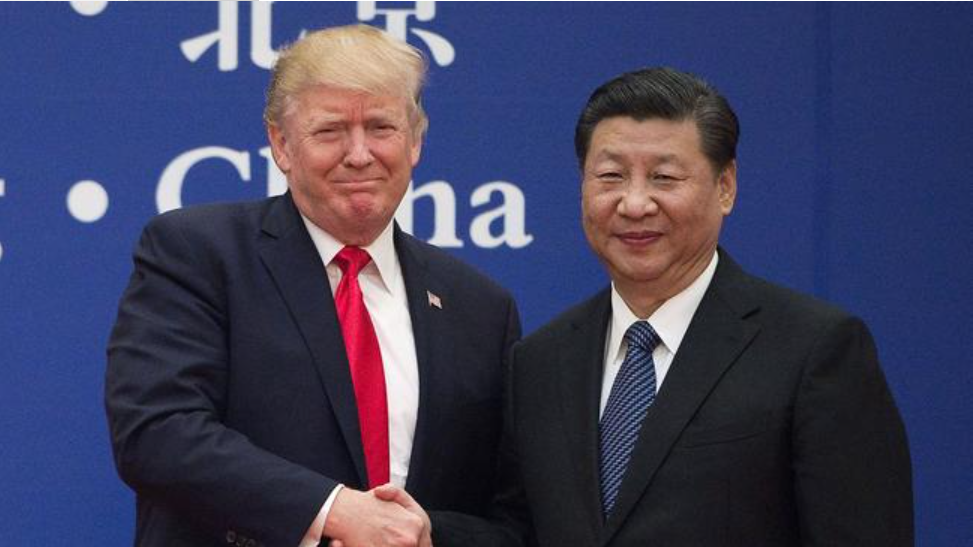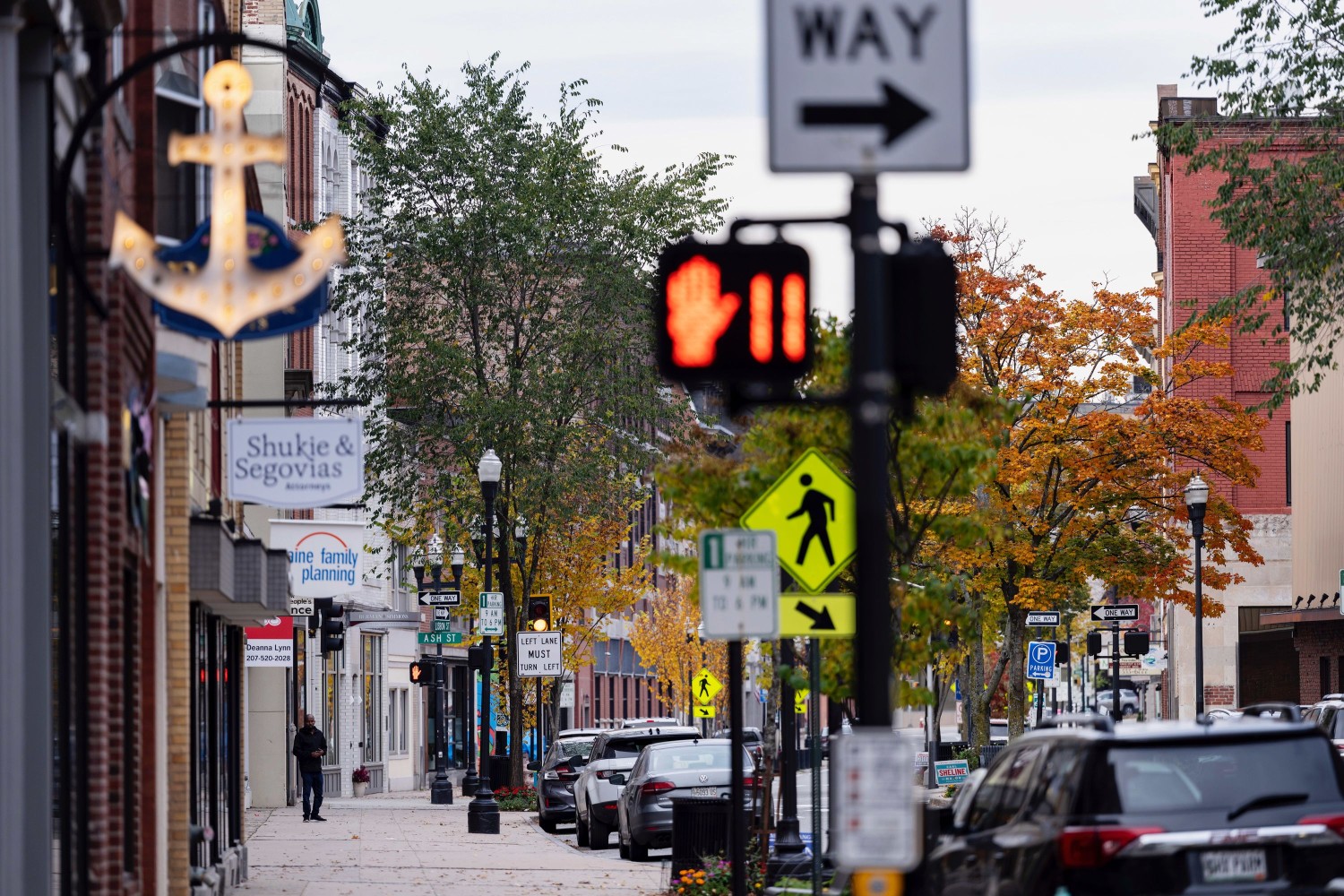This article is more than
4 year old‘Slave labour’: America’s brutal new moves against China exports and immigration

The United States has ramped up pressure on China by blocking imports of cotton it says are harvested with “slave labour”, and hitting Chinese Communist Party members with tough new entry rules.
Beijing has come under intense international criticism over its policies in the resource-rich Xinjiang territory, where rights groups say as many as one million Uyghurs and other mostly Muslim minorities are being held in internment camps.
Now the US has blocked cotton from the region, citing human rights issues.
The new rule allows Customs and Border Protection officials to detain shipments containing cotton originating from the Xinjiang Production and Construction Corps, a major paramilitary group already sanctioned by the US Treasury.
It comes after a dramatic new low in Australian-Chinese relations this week following an incendiary image published by a Chinese foreign ministry spokesman on Twitter. Australian PM Scott Morrison called the picture “repugnant” and demanded an apology.
China has also ramped up trading tariffs on Australia, including most recently on wine exports. On Thursday, Australia’s parliament was set to pass a law giving the federal government the power to blog agreements between states and the Chinese government, such as a controversial deal struck with Victoria.
“Australia’s policies and plans, the rules that we make for our country are made here in Australia according to our needs and our interests,” Mr Scott Morrison said.

Picture: Andrew Caballero-Reynolds / AFPSource:AFP
CHINA ACCUSES US OF FABRICATION
Regarding the cotton ban, senior Department of Homeland Security (DHS) official Ken Cuccinelli said: “The human rights abuses taking place at the hands of the Chinese Communist government will not be tolerated by President Trump and the American people.”
“DHS is taking the lead to enforce our laws to make sure human rights abusers, including US businesses, are not allowed to manipulate our system in order to profit from slave labour,” he added.
Beijing responded by accusing the United States of fabricating “fake news of so-called forced labour” and attempting to “oppress Xinjiang businesses.”
“Their aim is to constrain and oppress relevant parties and enterprises in China and curb China’s development,” said foreign ministry spokeswoman Hua Chunying on Thursday.
She denied there was any forced labour in Xinjiang, saying workers in the region “choose occupations based on their own wishes.”
Xinjiang is a global hub for cotton, with one study by a labour group estimating that 20 per cent of the garments imported into the United States contain at least some yarn from the region.
US House Speaker Nancy Pelosi said in September that products from Xinjiang forced labour “often end up here in American stores and homes.”
Beijing has staunchly defended its policy in Xinjiang, where it says training programs, work schemes and better education have helped stamp out extremism.
But Homeland Security officials have described the region’s training centres as facilities run like a “concentration camp.”

The US House of Representatives voted nearly unanimously in September to ban all imports from Xinjiang but the bill has yet to pass the Senate.
The country already bans products made through slavery but the proposed law would issue a blanket ban on products from the region, saying that forced labour is inextricably linked to its economy.
TOUGH NEW ENTRY RULES
Meanwhile, Washington also issued new entry rules for Chinese Communist Party members travelling to the United States, the New York Times reported, citing the State Department.
The new policy — which took immediate effect on Wednesday — caps visas of Communist Party members and their immediate families to one month and a single entry into the country, the report said.
“For decades we allowed the CCP free and unfettered access to US institutions and businesses while these same privileges were never extended freely to US citizens in China,” a State Department spokesman said in a statement quoted by the Times.
Applicants had previously been able to obtain 10-year visitor visas. The report estimated the new restrictions could theoretically apply to around 270 million people.
Tensions have soared between the world’s two largest economies on a range of fronts and both countries have stepped up travel restrictions on each other’s citizens.

Both countries have restricted journalist visas, with Washington curbing the number of Chinese nationals from state-run news outlets in the United States earlier this year.
China responded in March by expelling more than a dozen American journalists from the New York Times, the Washington Post and the Wall Street Journal.
The Trump administration has also revoked the visas of more than 1000 Chinese students under a policy introduced in June that accused some of espionage and stealing intellectual property.
Beijing did not confirm the new restrictions Thursday, but said earlier reports that the US was considering travel restrictions showed its “hatred and abnormal mindset towards the Communist Party.”
“Some extreme anti-China forces in the US, driven by a strong ideological bias and deep-rooted Cold War mentality, are politically oppressing China,” said foreign ministry spokeswoman Hua Chunying at a routine press briefing Thursday.
“This is an escalation of their political oppression towards China and China is firmly opposed to that,” she said.
Beijing has previously accused Washington of “political persecution and racial discrimination” over visa restrictions.
Keywords
Newer articles
<p>Kendrick Lamar has released a diss track attacking fellow rap star Drake, escalating their long-running feud.</p>
US Congress threatens ICC over Israel arrest warrants
Tiger’s heartbreaking daughter revelation
Rwanda must halt ‘support’ for M23 rebels, withdraw troops from DR Congo, says Macron
Tucker Carlson releases interview with Russian philosopher Aleksandr Dugin
Free Madonna concert draws crowd of 1.6m to Brazil’s Copacabana beach
Over half of Israelis believe Netanyahu should resign immediately - poll
Harvey Weinstein faces New York retrial after 2020 rape conviction overturned
US intel admits ‘potential for Russian military breakthrough’ in Ukraine conflict
Police make arrests in killing of B.C. Sikh activist Hardeep Singh Nijjar




